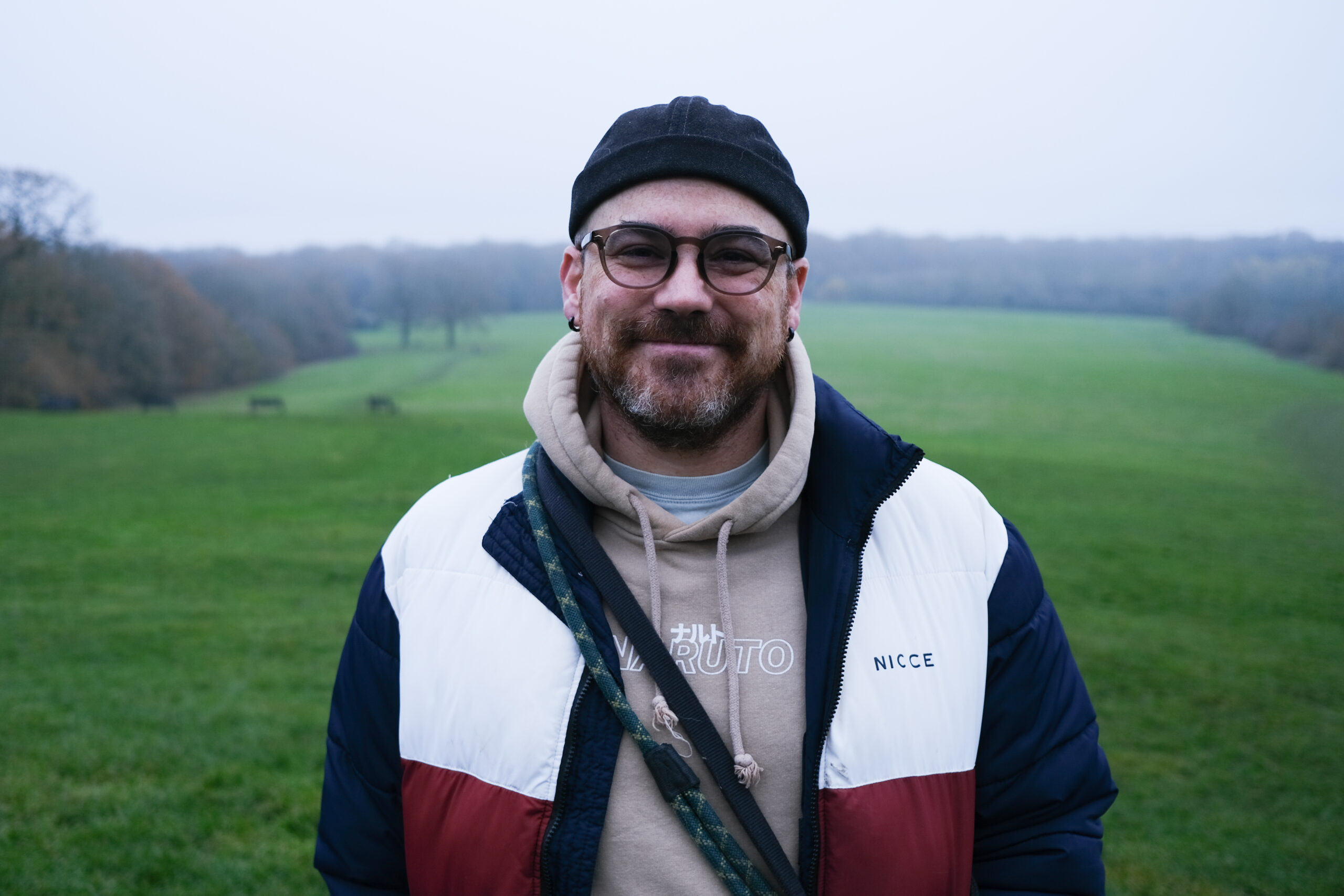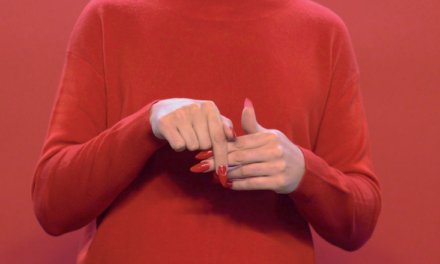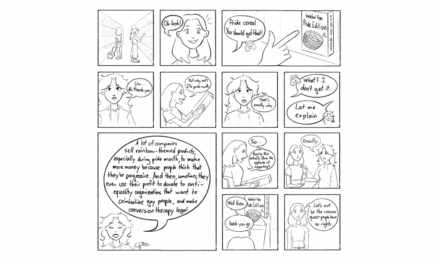
© Claire Barthelemy
Rafi has special powers. She unleashes magical adventures with a wishing wand she received when she was seven. Another slightly unusual fact about her is that she is growing up with two loving dads. Her family setup, however, is just a detail in this new British animated series – queerness is never really addressed. The young wizard is way too busy dealing with the fallout of her magical creations anyway, like the ‘adventure unicorn’ that is now wreaking havoc in Manchester, England, her hometown.
Séan McCormack, an Irish-Luxembourgish artist, is the director of “Rafi the Wishing Wizard”, a new animated children’s program being produced by Blue Zoo Studio for the BBC, Britain’s public broadcaster. McCormack, an animator, illustrator, and story artist, had been looking for a project like this.
“I want to make stories where queerness is represented in day-to-day life,” he says. “I don’t want it to be a big deal, I want to normalize it, especially in the family realm.”
Like most millennial queers, he remembers yearning for relatable cultural representation. The movies that were produced in the 1990s and early 2000s were ripe with clichés and pathos, often featuring character arcs where rejection, sickness, and violence culminated in tragic, untimely deaths. According to the entertainment industry of that time, queer joy and family life didn’t exist.
Séan started his career about 20 years ago, after completing his studies in Brussels and Bournemouth, a coastal town in the south of England. He found it hard as a young creative to push for more diversity in the projects he worked on – studios weren’t keen to take on risks.
“After I made more of a name for myself and started directing and writing, I was able to have a bigger impact,” he says. Blue Zoo Animation Studio, his current employers, have been very open, Séan says. “I’ve had complete freedom, and they really want to tell the story of a queer family,” he adds.
“Rafi the Wishing Wizard” is a series where magic and fun are for everybody, regardless of disability, ethnicity, or gender identity.
“It’s showing the world as it is today, as authentically as possible, without putting any judgment on who they are and how they are,” Séan says. “And the fact that Rafi’s dads are an interracial gay couple, that’s quite important for me, obviously, being in an interracial gay relationship myself,” says Séan, who just moved back to London from Berlin with his boyfriend. He now occasionally travels between London and Manchester, as part of his job. Having worked from home for most of the last two years, he is eager to work in person with his team again. He happens to feel very at home there. “It’s the gayest show and the gayest team I’ve ever had,” Séan laughs.
Séan grew up in Luxembourg, his family moved there from Ireland when he was seven, the same age Rafi received her wishing wand. Sean could have used some magic before the move because times had been rough in Ireland: his father, an airplane mechanic, had been away on jobs for months at a time. Séan recalls the story of how, as a kid, he didn’t recognise his father when he returned home from one of his travels. “I was five or something and I started to cry because I didn’t recognize him,” Séan says. That’s when his father decided to look for a permanent job, and he found one in Luxembourg. “We were supposed to be there for three years, and 35 years later, my parents are still there,” he says.
As a young immigrant, it took him a while to find his footing. Séan says he and his sister were bullied because they didn’t speak Luxembourgish, so instead of talking, they both started drawing.
“I started drawing because I didn’t have any friends,” Séan recalls. “Because we couldn’t talk to anyone, we would just sit there and draw. She would draw the room and I would draw her.”
He thinks that being isolated from their peers prepared them for their respective careers. “She got very good at drawing backgrounds and sets and she became an interior architect,” he says. “And I got good at drawing her and characters.”
It didn’t take long for Séan and his sister to learn Luxembourgish, and they ended up making a lot of friends. Séan says he wouldn’t describe the bullying he endured earlier as traumatic, but it was a challenging period in his life. Feelings of isolation and sadness resonate in his early creative work. “The Light Eater”, a short film he wrote and directed, tells the story of a boy who, since his father’s passing, is burdened with a rather bleak curse: every time he talks, he swallows the light around him. At the same time, he has to take care of his mother, who slipped into a deep depression after her husband’s death. The movie won the award for Best Animation Short Film at the 2016 Lëtzbuerger Filmpräis and firmly established Séan’s reputation in the Grand Duchy.
“Oops! Noah is Gone,” an animated feature released in 2015, was a much larger production that also came with more responsibilities. Séan co-directed the movie which tells the story of fantastical creatures that didn’t make it onto Noah’s Ark. It’s a story about not fitting in and carving out a life anyway. Séan was able to add some diversity to the hopeful and very funny retelling of the Genesis deluge.
“There’s two male penguins who are together,” he says. “They’re only background characters, and you wouldn’t really know if they’re queer.” But they did make it onto the Ark, and we know that some penguins are, in fact, gay.
Back in Southeast London, Séan is still in the process of settling in after his move from Berlin. When asked what his dream project would be, his old passion for comics becomes evident.
“I’m a big superhero nerd,” he admits. “If Marvel were to come to me and say, hey, we’re making an animated series or animated feature about the X-Men, I would die. So, you know, that would be a dream,” he says.
But he is experienced enough to know that dreams are often idealised versions of reality. Big studios are machines “that’ll chew you up and spit you out,” says Séan, who did some storyboarding work for Nickelodeon in Los Angeles a few years ago. He has built a successful career in Europe and Britain, a path that has led him to creative freedom. As an artist, it doesn’t get much better than that. Plus, “I’m fine with not being super rich,” Séan laughs.



